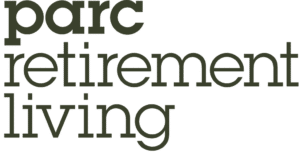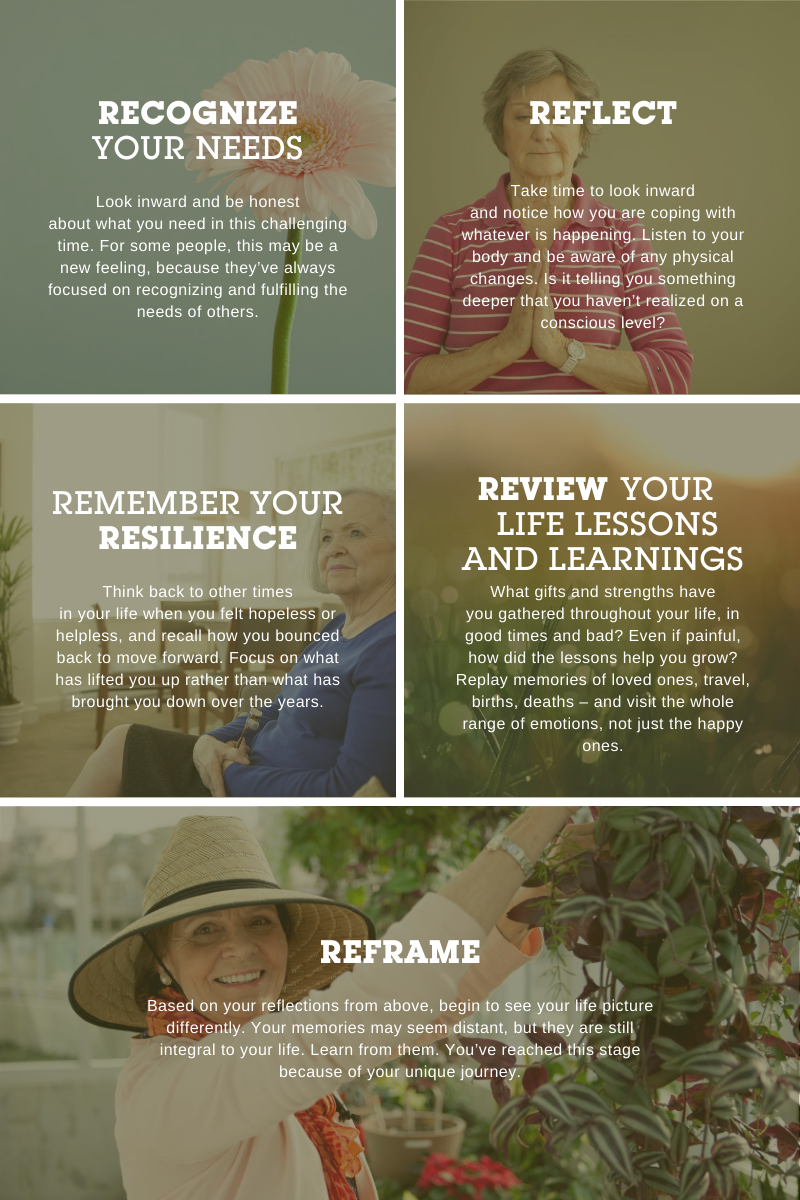Extend the Light During COVID-19
in COVID - 19 NewsWritten by PARC Retirement Living
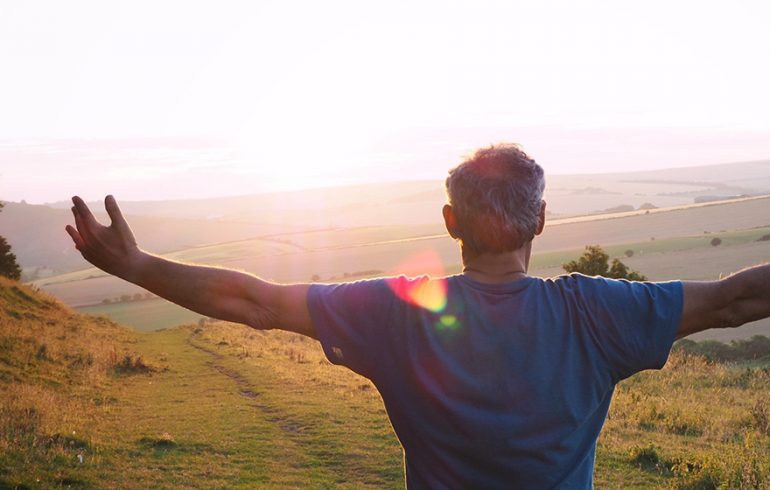
Managing our emotions and mental health can be a challenge even at the best of times. But pile on a heaping dose of stress and anxiety cause by a worldwide pandemic, and even the most stable individual would find it difficult to cope!
As part of our PARC Retirement Living virtual speaker series, Dr. Gloria McArter recently joined us to give her presentation called Extending the Light: to New Horizons of Possibilities with the Mind, Heart and Spirit. “Dr. Glo” has spent 30 years as a counselling therapist, and is also a lifelong student of human and spiritual connection. She talked through some of the challenges facing seniors during this difficult time, and shared tools to shed new light on difficult emotions.
Below, we chat with Dr. Glo further about coping during COVID-19, and strategies for healing through vulnerability.
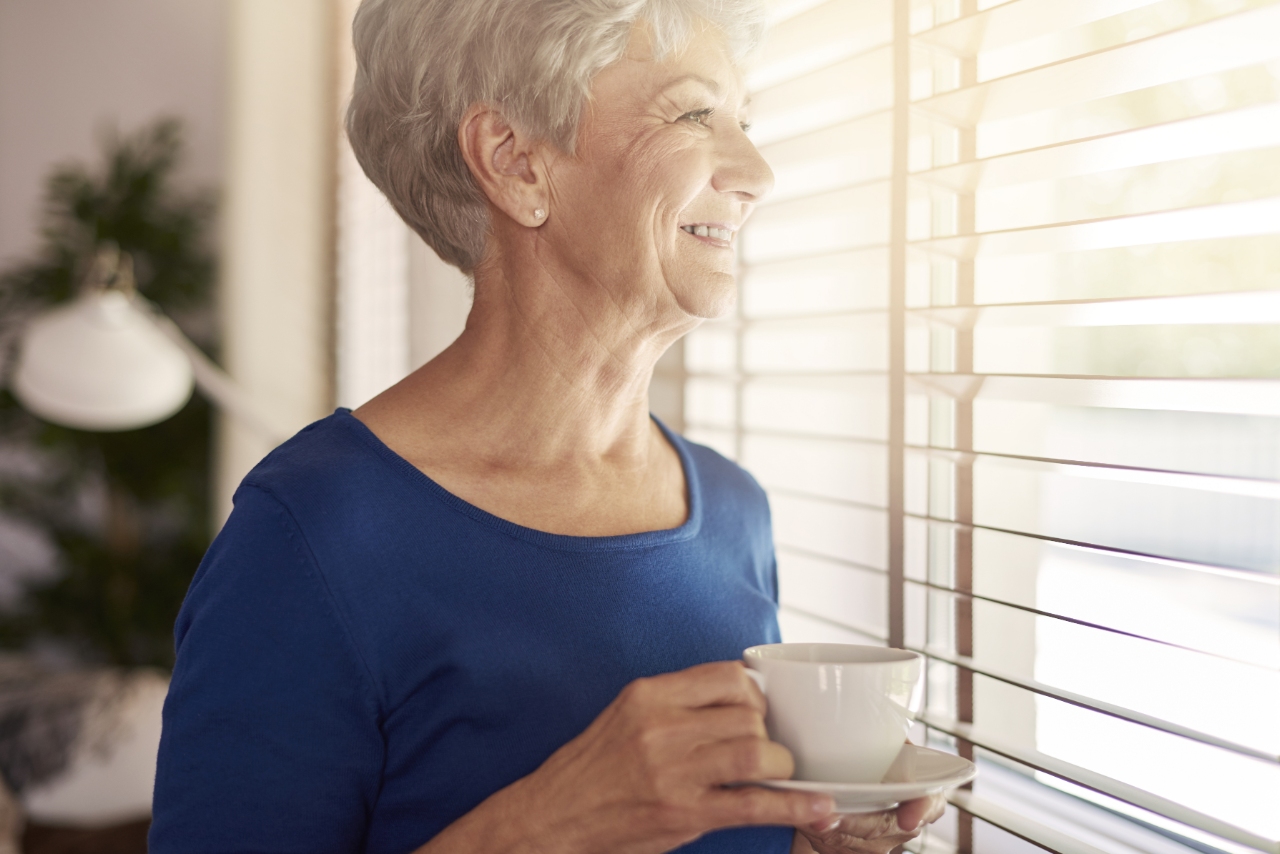
Q&A with “Dr. Glo,”
Q: Your talk is called “Extending the Light.” What does that mean, and why is it relevant right now?
A: Extending the light is a metaphor for seeking deeper wisdom. There are several ways I believe seniors can find deeper wisdom to help cope during the COVID-19 pandemic:
- Show up. This is the initial commitment to learn. Usually it involves asking questions. These can be very simple, closed questions; for instance, “Can I cope with this, yes or no?” Or, they can be open-ended, as in, “how can I cope with this?” “How do I make it through the transitions that are coming?” Both can provide enlightening answers.
- Hear promising and bold answers. This means truly listening and absorbing the answers we find, and looking for positive potential. For example, in B.C. provincial health officer Dr. Bonnie Henry’s announcements, we’re learning that B.C.’s COVID-19 infection numbers are staying relatively low – and that our cooperative efforts to flatten the curve have been working. There are still challenges ahead, but there is a lot of promise, too.
- Trust. This is about listening to that little voice inside ourselves: our intuition. This is a kind of deep knowing that I call the soul speaking. It tells us where we need to be and what we need to do, if we know how to listen.
- Say hello to FEAR: This is an acronym I use for “face everything and rise.” One response to fear could be to run away. Instead, say hello to your fear and know that it’s a normal and natural emotional response to uncertainty. Learn to have a relationship with fear, and face it rather than burying it, in order to rise.
- Enjoy the freedom of choice. During a time like this, we can feel limited. After all, we didn’t choose this unusual situation. But it can be helpful to remember you still have the freedom to choose what meaning it holds for you, how you interpret it and how you relate to it.
Q: Throughout your talk, there are two main themes that really jump out: first, that we should face our fears and feel all of our emotions, good or bad, in order to heal. And second, that we should have the courage to be vulnerable. Could you elaborate on those?
A: In my field, they talk a lot about “positive psychology.” However, things in life and relationships are not always positive. So we also need to give space to emotions such as fear, sadness and anger – feelings we would often rather evade. But that kind of mindset can lead to shame, because it’s like, “If I don’t feel all of these good things, then there must be something wrong with me.” And this is where the second part, vulnerability, comes in. This is about being open and honest about our emotions by saying, “Right now, I am afraid.” Or, “Right now, I am sad.” Or, “Right now, I’m confused.” It can be very difficult, because as human beings, we spend our lives building walls around our emotions. We hide them away because confronting them can cause pain. And healing pain can sometimes hurt more than whatever initiated it. For example, it hurts more to clean a scrape with alcohol than it did falling off the bike in the first place. But it’s a necessary step to prevent infection and promote healing.

Q: As adults, can we learn how to better speak to our emotions, and recognize that an argument isn’t necessarily a bad thing?
A: Yes, but it can be challenging, because there’s always the fear of conflict. We tend to say, I’m not going to talk about or express my true emotion right now, because it may hurt, or cause others to be angry. I’m just going to pretend it isn’t there and hope it’s going to get better. But it’s not going to get better because it just sits there. Then it becomes like a pressure cooker. It builds and it builds, until finally the top comes off. You cannot hold onto those emotions and believe there will be healing. But, by feeling a whole range of emotions; acknowledging them, you can grow. This helps us to learn resilience, heal and overcome difficulty. Taking a risk and exploring our emotions in a vulnerable way that may hurt, but it also helps us develop true inner strength.
Q: How does one begin sharing emotions honestly, especially in this time when we’re very uncertain?
A: Taking those first steps to face your fears can be difficult. I always advise my clients, “put your toe in the water” first with someone. If that feels comfortable, then you move in a little further, and a little further. You don’t have to go to the deep end and just jump in. Building trust is big.
Q: Do you find that it’s harder for seniors or older adults to be vulnerable?
A: You know, I’m 73 going on 74. I really believe it is something that can come with age and experience. It has a lot to do with the work a person has done to build resilience. I find that often seniors can actually be braver in this way, because with age comes more experience and more wisdom. And change is ageless. Seniors, with encouragement and respect, are sometimes more willing to go to their vulnerable places than the younger generation. Often seniors have been holding on to things, and later in life, they finally want an opportunity to speak about it; to acknowledge it and be told, “Wow, isn’t this wonderful what you are doing?”
Q: What are some of the issues that COVID-19 can raise for seniors?
A: Seniors might be feeling fear about the virus and its potential effects. As a result of physical distancing, they may also be experiencing changes in how they connect with other people, and stress caused by loneliness or boredom. As we’ve discussed, it’s human nature to only want to feel positive emotions like joy and excitement – and of course we need to be positive and optimistic during these times – but we also need to be realistic and allow ourselves to feel the difficult emotions, such as sadness, fear, shame. Above all, during these times, try not to get down on yourself or others. Know you are valuable. You are worthy. You are enough.
To face any kind of challenge, I tell my clients to consider what I call the five “Rs”:
Q: You refer a lot to the element of “spirit.” What do you mean by this, and how important is one’s spirit to growth and healing?
A: Well, you know, I always take it back to the Latin word “spiritus,” which means breath, and life. You can get to the head and the heart, where the emotions are, but the spirit is even deeper. It’s that element you can’t necessarily see, and yet you do feel it at a very deep level. And it is so important to nurture. Some people are part of a religious community. Others seek out art, music or other kinds of programs that touch the inner place within them. To get in touch with your own spirit, it can help to imagine being comforted or guided by an energy or spiritual power within yourself. Other spirit-strengthening practices I recommend are: mindfulness meditation, yoga, deep breathing, listening to or making music and keeping a diary of feelings. Simply appreciating interactions that go well, day to day, is a very powerful spiritual practice, too.
To listen to Dr. Glo’s fascinating talk on self-improvement and growth, check out PARC’s Virtual Wellness Speaker Series – Pathways Back Toward Calm on our YouTube channel. Subscribe to our channel and visit our blog for even more helpful content.
- Light the Pathway – Deborah Braun, M.A., RCC
- Extend the Light – Dr. Gloria McArter, Ph.D., RCC
- Reroute Anxiety – Deborah Braun, M.A., RCC
- Make Friends with Anger – Dale Trimble, M.A., RCC
- Relieve Relationship Distress – Jo-Anne Weiler, M.A., RCC
This information is not intended as medical advice, and should not replace a one-on-one relationship with a qualified healthcare professional.
